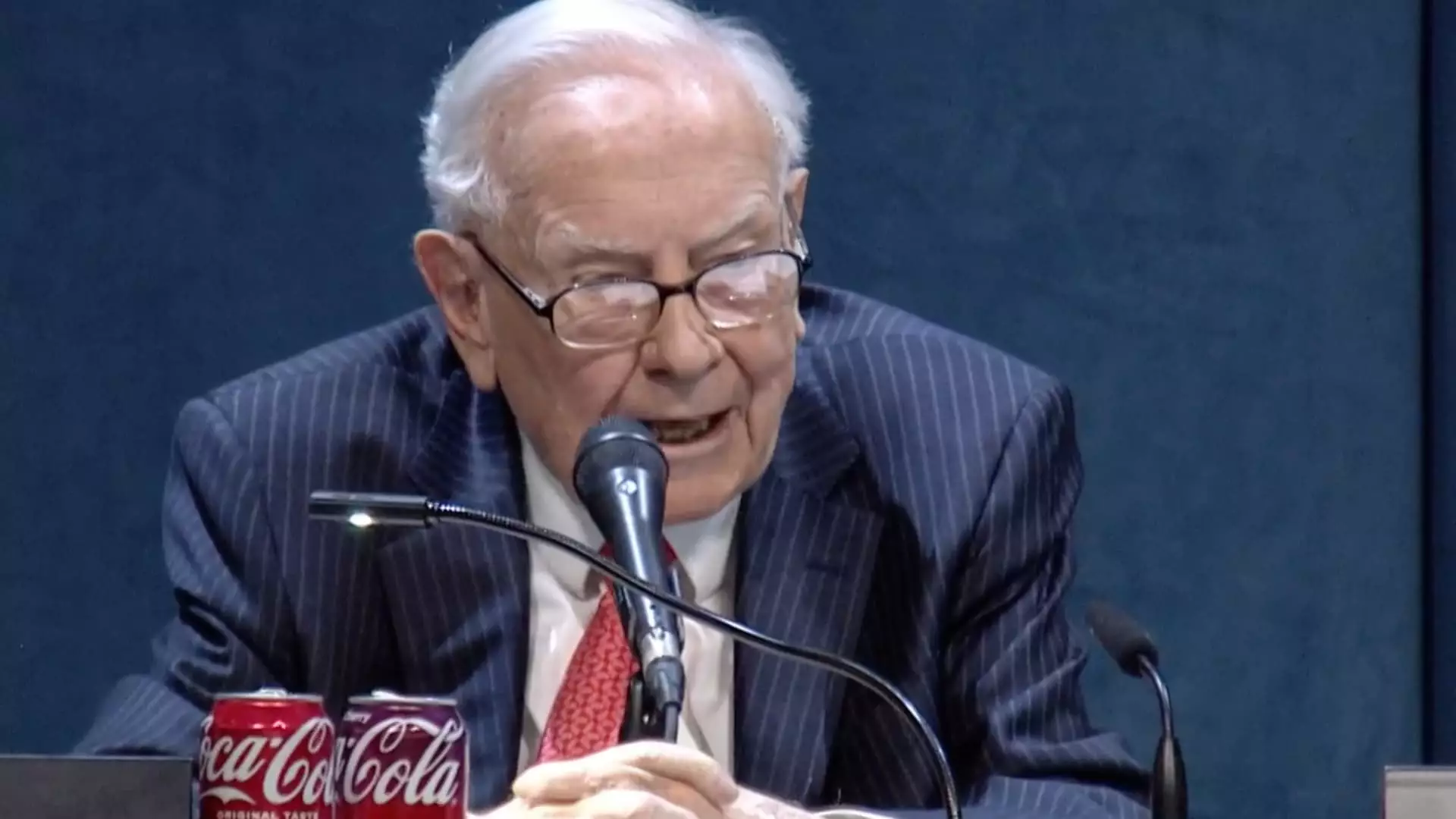In a dramatic address during the recent Berkshire Hathaway shareholder meeting in Omaha, the legendary investor Warren Buffett articulated a powerful critique of the prevailing U.S. trade policies. Without uttering President Donald Trump’s name, Buffett condemned the imposition of punitive tariffs as a grave error that could destabilize the global economic landscape. His perspective represents a profound belief in the interconnectedness of international trade, suggesting that a holistic view rather than isolationist policies would serve the U.S. far better in the long run.
Buffett’s assertion that “trade should not be a weapon” underscores his commitment to maintaining productive economic relationships. By framing tariffs as acts of war, he highlighted potential consequences that extend beyond mere economic statistics; they could foster animosity and mistrust among nations. Acknowledging that prosperity is not a zero-sum game, Buffett emphasized that the wealth of other nations does not detract from American wealth but rather augments it. His philosophy posits that as other countries prosper, so too will the United States. This perspective has tremendous implications, suggesting that collaboration rather than confrontation should be the guiding principle of U.S. trade policy.
The Economic Landscape: Fear and Uncertainty
Buffett’s warnings are particularly poignant in the context of recent economic tumult in America. Following the government’s announcement of elevated tariffs, global markets experienced significant upheaval. While a brief reprieve was granted with a 90-day pause on increased tariffs, investors remain on edge as Trump’s administration resumes complex negotiations, particularly regarding China. The implementation of tariffs over 145% on imports from China has incited retaliatory actions that have further strained international relations. Buffett’s insights imply that such protective measures could backfire, leading to decreased economic stability and an uncertain future for American trade dynamics.
The current economic climate is perilous, evidenced by the contraction of the U.S. GDP for the first time since 2022. Buffett’s commentary reflects a broader apprehension shared by many investors. Uncertainty stemming from geopolitical tensions and economic friction poses hurdles not just for corporate entities like Berkshire Hathaway but for the economy as a whole. The conglomerate itself has admitted that it currently struggles to predict how tariffs might influence its operations and performance. This sentiment resonates deeply, encapsulating a widespread fear concerning the larger implications of ongoing protectionist measures.
Investment Strategies in an Unstable Environment
As the “Oracle of Omaha,” Buffett’s investment philosophies are closely scrutinized by market watchers eager for insight amidst ongoing volatility. His current strategy has been notably defensive, as evidenced by a sustained sell-off of stocks over the last ten quarters. The staggering $134 billion worth of stocks divested in 2024—primarily from major holdings in technology giants like Apple and financial institutions such as Bank of America—illustrates his cautious approach during these unpredictable times.
Buffett’s decision to hoard a substantial cash reserve, hitting a record-high of $347 billion at the end of March, may reflect a tacit acknowledgment of the need for liquidity in the face of potential market downturns. This hoarding behavior suggests a fundamentally proactive strategy: to be well-positioned to seize opportunities that arise when market conditions stabilize or shift unexpectedly. Given Buffett’s historical success during periods of economic strife, his current tactics could very well lay the groundwork for future investments in a post-tariff economy.
A Vision Beyond Borders
Warren Buffett’s insights offer a thought-provoking examination of the intertwined destinies of nations within the global economy. His advocacy for open, prosperous international trade resonates strongly as nations navigate increasingly contentious political landscapes. Ultimately, Buffett champions a vision of economic interconnectedness—a belief that healthy trade relationships foster a more vibrant and secure future for the United States and its global counterparts. As the world watches, Buffett’s words serve as both a warning and a guiding principle for policymakers and investors alike, urging a reconsideration of protective measures and advocating for the pursuit of cooperative prosperity.

